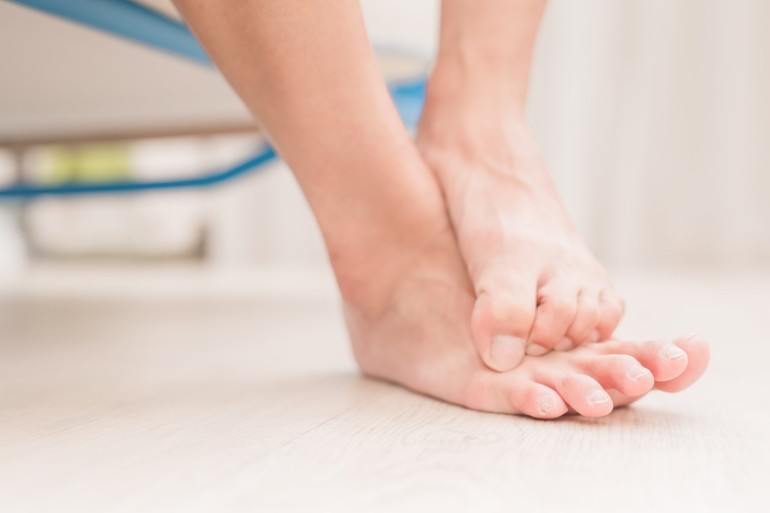The Centers for Advanced Orthopaedics is redefining the way musculoskeletal care is delivered across the region with locations throughout Maryland, DC, Virginia and Pennsylvania.
Treating Common Causes of Toe Numbness

Numbness in one or more of your toes may not seem like a big deal, but a lack of sensation in your feet can cause serious problems for your balance and coordination, which could put you at risk for another injury. Moreover, numbness may be a symptom of a more serious injury beneath the surface, so you shouldn’t just ignore that numbness in your toes. In today’s blog, we take a closer look at some of the causes of toe numbness and how our team can help you treat the issue.
Why Are My Toes Numb?
Chronic toe numbness can be caused by a number of different issues, with some being more severe than others. It’s important to seek out a consultation with your primary care physician or a foot and ankle specialist to get a better understanding of your underlying cause, which may be from one of the following:
- Nerve compression/damage
- Complications related to diabetes
- Poor circulation
- Peripheral vascular disease
- Frostbite
- Sciatica
- Disc herniation
Nerve compression or damage is one of the most common causes of toe numbness, and oftentimes symptoms are most noticeable right after athletic activity or after being on your feet for an extended period. Toe numbness as a result of a nerve issue is also more common if you’re dealing with a bone deformity in your foot that can irritate nerves. The most common bone deformity in this area is an untreated bunion.
How To Treat Numb Toes
Like most conditions, treating the problem can’t happen until you understand the root cause, so if you are experiencing occasional or chronic toe numbness after activity or extended seated periods, sync up with the team at The Centers For Advanced Orthopaedics. We’ll talk with you about your symptoms, review your medical history and conduct a physical exam to help get a better understanding of what’s going on in your foot. From there, we may do some additional imaging or testing to pinpoint a cause.
Depending on your cause, treatment may be as simple as making a few healthy lifestyle adjustments, like becoming more active, changing to a better fitting shoe, adding a custom orthotic insert to your shoe or taking certain medications. If the condition is caused by a bone abnormality like a bunion, doctors will work to address that issue in order to take pressure off the nerve, which may involve similar conservative techniques or a minimally invasive procedure.
If underlying health issues like diabetes or a vascular condition are to blame, your doctor will walk you through the specifics of managing these conditions, which should have a positive impact on your symptoms in your toes. Oftentimes these management techniques are combined with the non-operative treatments listed above, like exercise increases and footwear changes. Nutritional changes may also be recommended if your weight is a factor in symptom expression.
For more information about why your toes are feeling numb, or to get to the bottom of your foot issue, reach out to the team at The Centers For Advanced Orthopaedics today at (703) 584-2040.